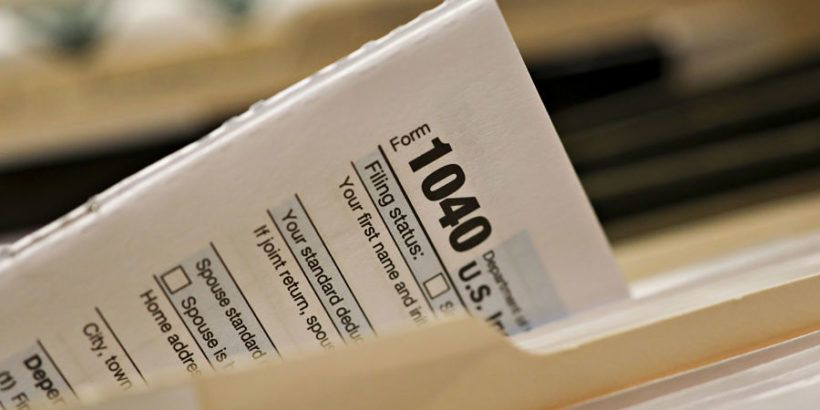Can you really make millions and pay little or nothing in taxes, and do it legally? Absolutely! Big corporations do it all the time. But so can certain individuals who have the right set of financial facts, specifically the right sources of income and losses.
Advertisement
The story here is whether the amounts President Trump allegedly reported on his tax returns constitute tax avoidance (legal) or tax evasion (illegal), or somewhere in-between. That is something for the IRS to decide.
How can wealthy people pay no taxes? As a CPA who has prepared well over 10,000 tax returns over 40 years, I can tell you that every client wants to pay as little as possible. This reminds me of the quote by the famous entertainer Arthur Godfrey: “I’m proud to pay taxes in the United States; the only thing is, I could be just as proud for half the money.” That’s how most people feel.
The problem is that workers with W-2 income wind up with the largest tax bills because they have no special ways to reduce that income, other than the standard or itemized deductions, reductions for making retirement contributions and certain other relatively small breaks and tax credits. Even job-related expenses are no longer deductible as an itemized deduction. The Tax Cuts and Jobs Act eliminated those.
Source of income matters
If you have your own business, instead of pure wages, the deduction doors crack open for you, allowing you to deduct losses and in many cases letting you use those losses to offset other income, including W-2 income. A business is the single best tax shelter a person can have.
That’s even more true now in the COVID work-from-home era. If you have your own business, you can deduct many home-related expenses for the business use of your home, including items such as a percentage of mortgage interest, real estate taxes and depreciation, or even rent. These juicy home office deductions are generally not available for W-2 wage earners, even if they work from home.
Even if you have your own business, the source of income still matters, and that may be why Trump allegedly pays little or no taxes. If your source of income is real estate, then the deduction door not only opens but comes off the hinges. I’ve had lots of real estate clients who also used the tax code legally to avoid taxes with huge depreciation, interest and tax deductions. Then, even when they sell, they can use like-kind exchanges to defer any gains and effectively roll those gains into a new property — all totally legal. And at death, all these deferred gains go away through the step-up in basis rules, allowing beneficiaries to inherit the property at the date-of-death value. All the appreciation over a lifetime goes untaxed for income tax purposes. There are even legal ways to remove the property for estate taxes.
The president appears to have all the right sources of income that can be reduced to nothing through massive deductions. So the answer is yes, you can be property-rich and pay no taxes. Remember that the income tax is a tax on income, not wealth.
While we don’t have all the details on the president’s taxes (other than the New York Times report), there is one thing that is clear. He had to have run up years of gargantuan losses to wipe out his tax bills for so many years. The next questions are: What’s in those losses and are the items being deducted legally? Again, that is for IRS to decide, and we may never know that.
The big question for most people is: How can I cut my income like that? Many in real estate are already doing that. Some others with favorable sources of income, like capital gains where you can actually have a zero-percent tax bracket, are paying much less in taxes than a W-2 employee. That’s true even for lower-income workers, who have no favorable tax attributes, other than certain available credits. Middle-income workers, and especially married couples where both spouses have W-2 income, will almost always pay the highest taxes compared to those with more tax-favorable sources of income.
Is this fair? Of course not. The tax code has always picked winners and losers. That is unfortunate and that fairness gap has been expanding over the last few tax acts.
For example, those in high-tax states are now limited to $10,000 in deductions for state and local income taxes, known as SALT taxes. Even small businesses now receive a special 20% deduction for qualified business income, but here again there are winners and losers based on occupation and income limits. For example, financial advisers, CPAs, attorneys and entertainers (to name a few) will not qualify for this generous deduction once their income exceeds certain limits. Again, not fair. Why some occupations and not others?
The bottom line is that to pay less in taxes, sources of income matter, and the president seems to have all the right sources and plenty of losses to knock out even that income. If you have no taxable income, you have no income tax.
Can your clients do this? Maybe. It depends on how aggressive they wish to be on their taxes. That’s always going to be a personal decision, but in the end, people must sleep at night after signing their name to the tax returns. Some sleep better than others.
That being said, there are easy legal ways for most people to turn taxable income into tax-free income, especially when it comes to retirement tax and estate planning. Examples of this include converting an individual retirement account to a Roth IRA or using the tax benefits of life insurance. Yes, some of those moves require using taxable IRA funds and that means paying taxes up front, but today’s low tax rates provide an unprecedented opportunity to do this. The key to cutting your lifetime tax bill is to always pay taxes at the lowest rates, and that may be right now. Most clients will benefit by investing in taxes now to gain more tax-free income later on, when taxes may be much higher.
Everyone wants to pay less in taxes, and financial advisers can help them do that, legally.
It always turns out that those who plan the most, pay the least. The president is either a fantastic tax planner who has the best tax advisers on the planet and the absolute best sources of income and business structures, or he has pushed the envelope and gamed the system, crossing over from tax avoidance to tax evasion. We may never know, but this may be a sign for the rest of us to address and prioritize our own tax situation.
Even if the tax code is unfair, most taxpayers can help even the odds with good long-term tax planning. If anything, the publicity surrounding the president’s taxes has demonstrated the great value advisers can provide with effective tax planning.
For more information on Ed Slott, Ed Slott’s 2-Day IRA Workshop and Ed Slott’s Elite IRA Advisor Group, please visit www.IRAhelp.com.



